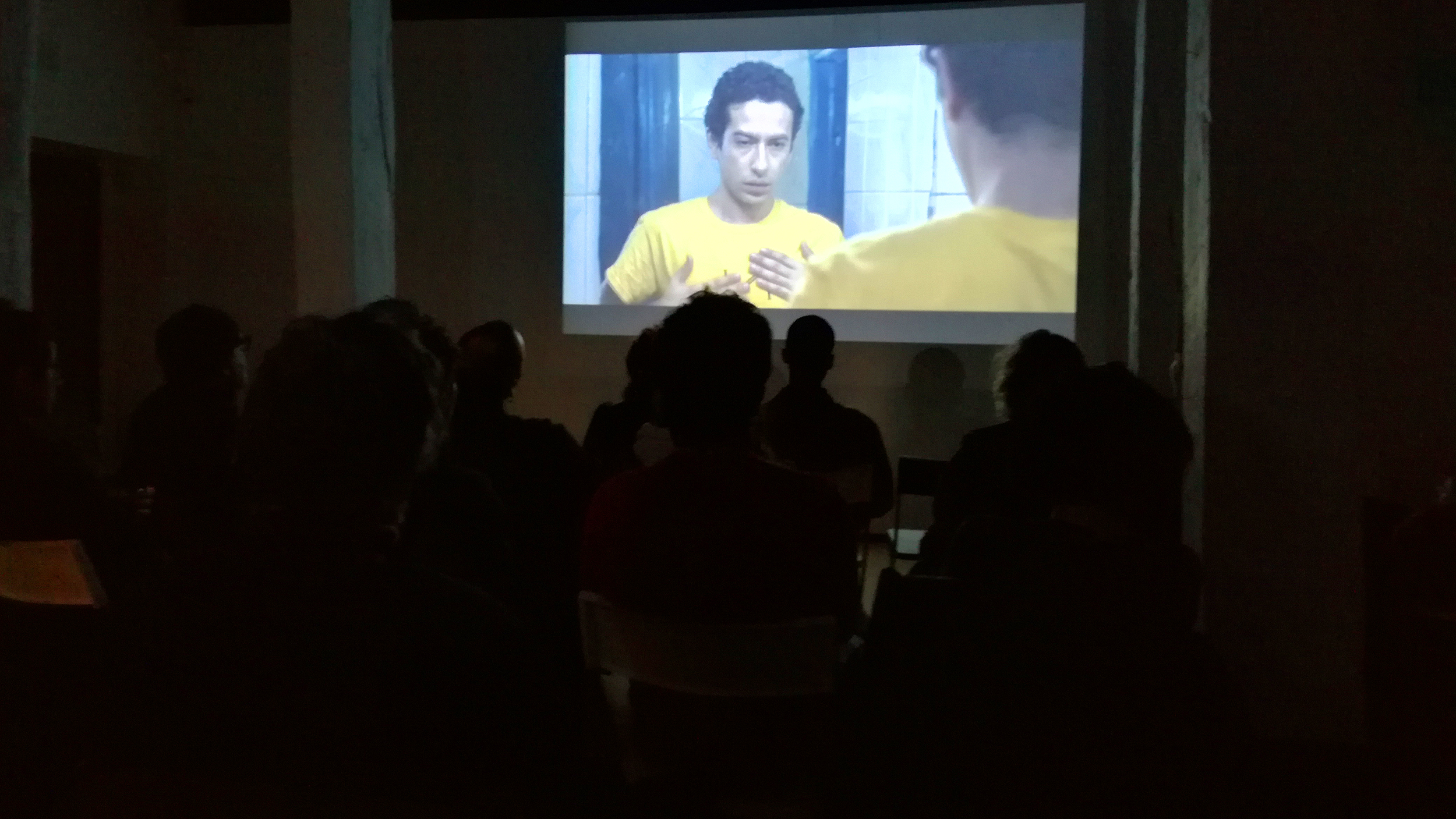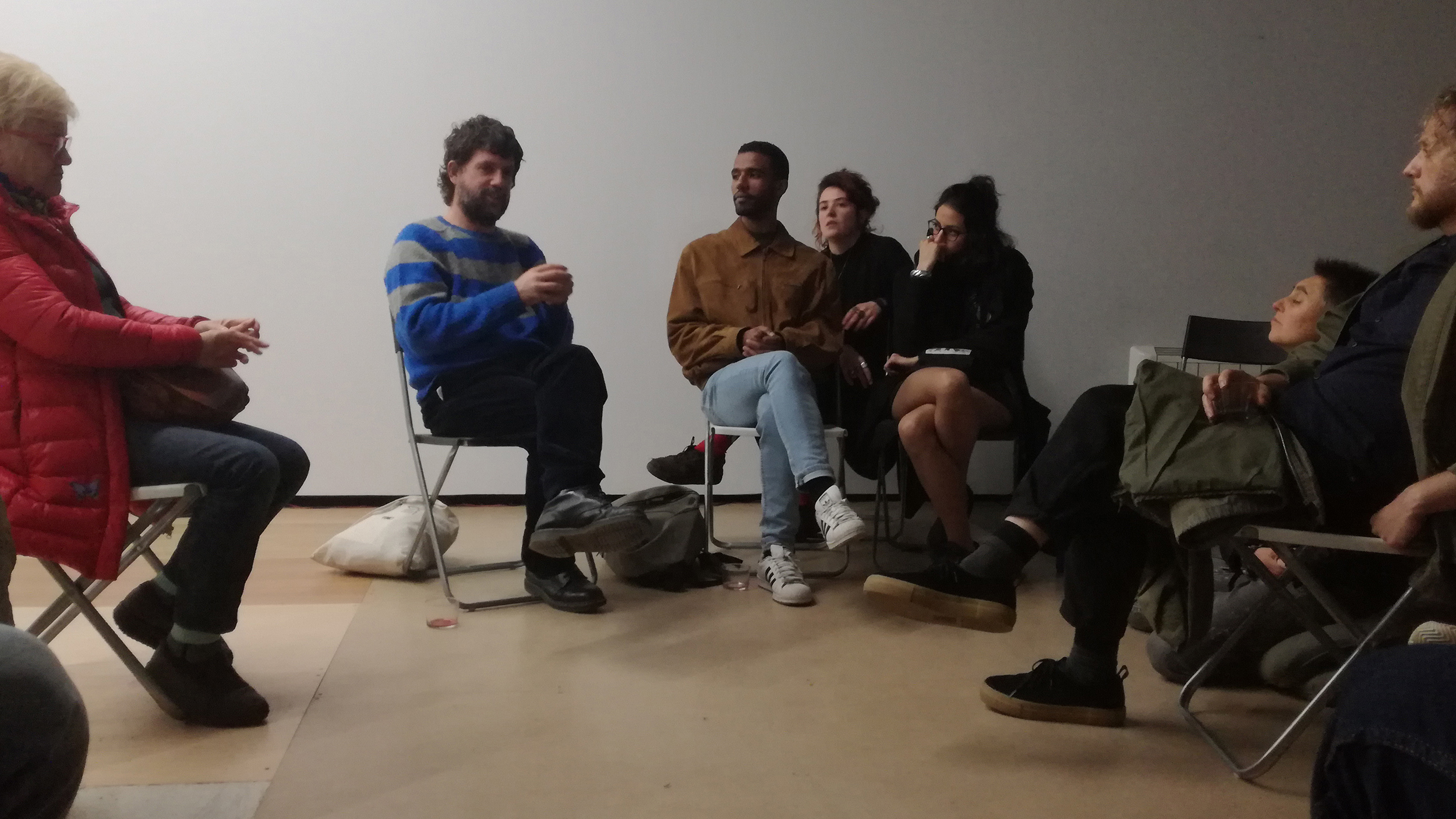Illegal_cinema
SESSION 87, ILLEGAL_CINEMA
by
Screening of La Perruque (Karim Boukhari, 2015, 19’) and 475 (Nadir Bouhmouch, 2013, 63’). Proposed by Rachid Farhan and Zahrat Essawssane Bourhil and followed by discussion.
We chose the film 475 for this session because it is altogether illegal cinema: it was made clandestinely, with no authorization, in what its maker Nadir Bouhmouch calls “an act of civil disobedience” against the Centre Cinématographique Marocain (CCM) –the Moroccan film institution, and its restrictive film and censorship laws. Its team was comprised of a small group of volunteers with little or no film experience. Instead of requesting public funding from the CCM the filmmakers opted for a crowdfunding campaign. 475 was produced in the context of an alternative film movement known as “Guerrilla cinema”, “an artistic resistance for freedom of expression in Morocco”, which stems from the 20 February movement (which championed the protests and demonstrations by the people of Morocco in 2011).
La perruque is a small film which, subtly and with few words and no victimisation, takes us through the main character’s day in a cinema, where he gives oral sex in exchange for money, a frequent activity before most small cinemas in Morocco closed down.
Rachid Farhan was born on 17 August in Zagora, in south east Morocco. After a high school diploma in Modern Literature, he studied for a degree in French Language and Literature in 2011 and then a Master in Education in Cultural Mediation for Art and Science at the Faculty of Educational Science, Mohammed V University of Rabat, Morocco. After his Master’s degree he spent several years working on the organisation of many different cultural and artistic events in Morocco, particularly in Rabat. Along with his cultural activities at this time, Farhan committed to the queer and feminist struggles. This allowed him a deeper knowledge of gender issues which enabled him to better analyse power relations, inequality and forms of oppression. He has now been working for over three years on masculinities with the Quartiers du Monde association, where he has designed dynamic workshops for identifying stereotypes and gender roles and reflecting on inequality and power relations.
Zahrat Essawssane Bourhil has a degree in Psychology and briefly trained for the circus at the Shems circus school. She has been taking contact-improvisation lessons since 2014 and has worked at the East-West Foundation for a short time as project manager. She has also worked as researcher and translator for a doctoral student’s thesis, “Cities Without Shanty Towns: Who Benefits from Resettling Families in Shanty Towns?” Her cultural collaborations include work with festivals such as HHF –Hardzazat Hardcore Fest–, where she helped set up the feminist section; SBAGHA BAGHA Street Art Festival, as an artist assistant; and L`Boulevard Young Artists Festival, as production manager for Canal L’Boulevard. She is committed to the Moroccan feminist and queer struggle.
Rachid Farhan and Zahat Essawssane Bourhil are now running a workshop at Tabakalera International Centre for Contemporary Culture, San Sebastian. Using contact-improvisation and body movement exercises, they put into practice and dance a choreography of situations and relations governed by power and oppression, based on race, gender, sex, social class, etc.








